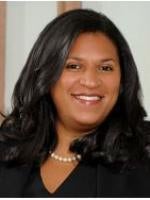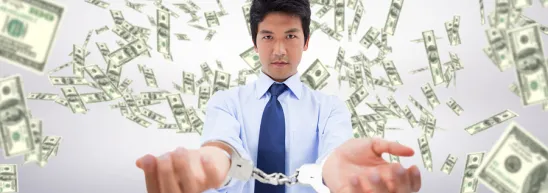The Department of Justice (DOJ) and the Securities and Exchange Commission (SEC) have taken legal actions to combat fraud arising out of the COVID-19 health emergency.
DOJ Restraining Order
On March 23, 2020, the U.S. District Court for the Western Division of Texas issued a temporary restraining order to halt a predatory wire fraud scheme related to coronavirus treatment sales. The DOJ brought charges, pursuant to 18 U.S.C. § 1345, which permits the government to enjoin an ongoing fraud to prevent irreparable harm to the public.
In the case, United States of America v. John Doe a/k/a “coronavirusmedicalkit.com,” the government alleges that persons operating the website published statements fraudulently claiming that the World Health Organization is giving free away vaccination kits to immunize people from the COVID-19 outbreak. The website required visitors to enter credit card information and pay a $4.95 shipping fee to receive the free vaccine. The government alleged, “[t]he purpose of the website is to induce victims to pay Doe and those working in concert with him or her $4.95 for such non-existent kits, and/or to obtain credit card and other personal information from victims for purposes of engaging in fraudulent purchases and identity.”
Attorney General William Barr has signaled that coronavirus fraud is a top priority of the Justice Department. Federal prosecutors in United States v. Doe echoed this statement, warning
the Department of Justice will not tolerate criminal exploitation of this national emergency for personal gain. We will use every resource at the government’s disposal to act quickly to shut down these most despicable of scammers, whether they are defrauding consumers, committing identity theft, or delivering malware.
Deputy Attorney General Jeffrey A. Rosen recently sent a memo to all U.S. Attorneys directing them to appoint a COVID-19 Fraud Coordinator to “serve as the legal counsel for the federal judicial district on matters relating to the COVID-19, direct the prosecution of COVID-19 related crimes, and to conduct outreach and awareness activities.” The national Fraud Coordinator is establishing a web portal for all U.S. Attorneys to coordinate COVID-19 fraud litigation with 16 other federal agencies.
SEC Action
Another concern in this enforcement climate is the risk of publicly traded companies being used as “bait” in a time of pandemic by “pump and dump” fraudsters, according to recent guidance by the SEC. In such a scheme, scammers use targeted web advertising and other means to publish spurious rumors about a company to temporarily inflate the price of its stock. The SEC monitors this activity closely and can halt securities trading it believes may be artificially inflated by false rumors that a company is offering products that could help consumers during the COVID-19 pandemic. Companies will want to beef up internal monitoring to make sure that they are not being used in these schemes, and should also be cautious about making statements related to their ability to intervene in the pandemic. The government recently halted trading of several biotech firms. In one case, the SEC issued a halt on common shares trading of a pharmaceutical company when the company issued press releases suggesting that it had acquired a stockpile of N-95 medical masks.
In another case, a biotech company’s common shares trading was suspended when publically accessible information suggested that the company had acquired an international licensing agreement for a coronavirus cure. In addition, at least one medical equipment company appears to have been the victim of a pump and dump scheme; in halting trading, the SEC said that third party promoters disseminated statements about the viability of the company’s ability to treat or cure COVID-19.
Medicare Fraud
Medicare fraud cases related to COVID-19 also appear to be on the rise. In United States v. Erik Santos federal agents arrested a Georgia man who allegedly received kickbacks for referring patients for COVID-19 testing who were unlikely to test positive, but on whom an additional battery of respiratory tests could also be conducted and then billed to Medicare. Federal prosecutors noted that the crime was especially serious due to the shortage of COVID-19 testing.
List of Best Practices to Avoid Fraud
In addition, DOJ published a list of best practices individuals can follow to avoid falling victim to a predatory scheme during this unprecedented crisis. DOJ, SEC, and other agencies will continue to prioritize enforcement initiatives to prevent public fraud during this time. Aligned with the government’s guidance, businesses should encourage their employees to remain vigilant and follow internal protocols on reporting suspected fraudulent activity and/or suspicious phishing or other electronic solicitations. Given the unique nature of these crimes during this uncertain climate, it is also recommended that companies monitor and enforce employee compliance with policies and procedures, and assess internal controls for potential weaknesses. Effective compliance begins with understanding the enforcement environment and the risks particular to the company’s activities. Companies must be prudent and take appropriate steps to avoid negative impact to their business stemming from criminals seeking to exploit national emergencies.
Also authored by Dimitar Georgiev







 />i
/>i
